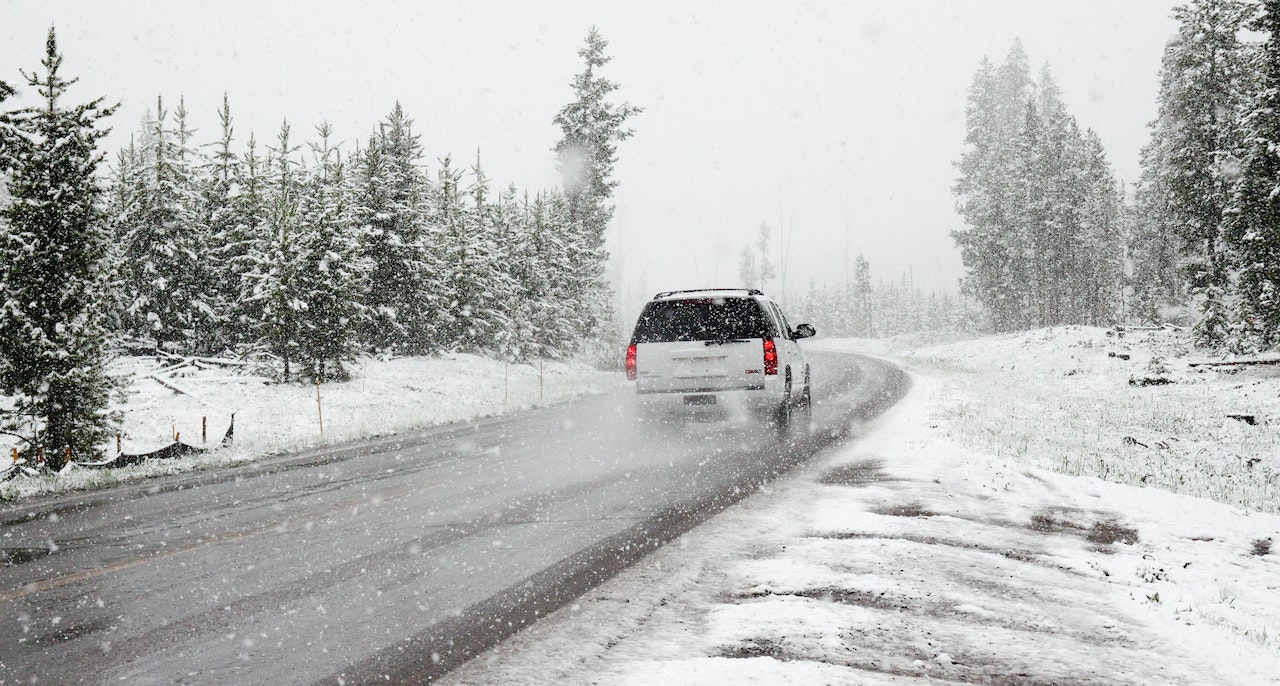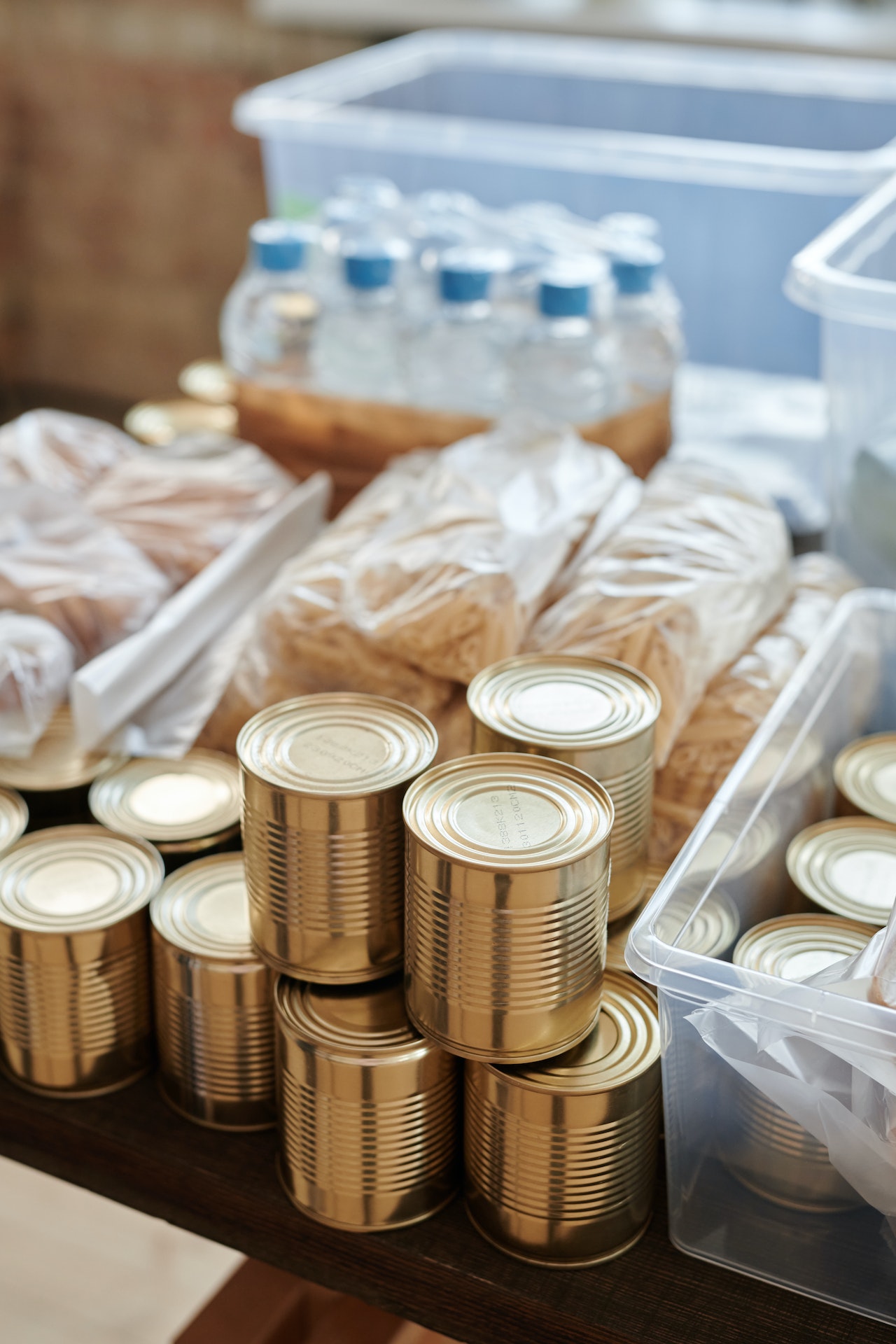Photo by: Gustavo Fring Source: Pexels
In today’s uncertain times, the wisdom of being prepared for emergencies is more evident than ever. Surprisingly, most of what you’ll need for basic emergency preparedness can be found at your local grocery or warehouse club store. This guide will walk you through those essential items and tips on proper storage.
1. Water
What to Buy:
- Bottled water (a gallon per person per day for at least three days)
- Water purification tablets or drops
Storage:
- Store in a cool, dark place, away from direct sunlight.
- Ensure containers are sealed to avoid contamination.
- Rotate stocks every 6-12 months to ensure freshness.
2. Non-perishable Food
What to Buy:
- Canned goods: vegetables, fruits, beans, soups, stews, and meats.
- Dried goods: rice, lentils, quinoa, and pasta.
- Ready-to-eat cereals and granola.
- Nuts and trail mixes.
- Peanut butter and other nut butters.
- Powdered milk and canned juice.
- High-energy foods like energy bars and protein shakes.
Storage:
- Store in a cool, dry place.
- Use shelving to organize and rotate items, consuming the oldest stock first.
- Invest in airtight storage containers for opened dried goods to extend their shelf life.
3. First Aid and Health Supplies
What to Buy:
- Over-the-counter pain relievers like ibuprofen or aspirin.
- Antiseptic wipes and hydrogen peroxide.
- Adhesive bandages of various sizes, gauze, and tape.
- Prescription medications (ensure a week’s supply at least).
- Multivitamins.
Storage:
- Store medicines in their original containers in a cool, dark place.
- Rotate and replace items before they expire.
- Consider a designated first aid box for ease of access.
4. Personal Care and Hygiene
What to Buy:
- Toothpaste, toothbrushes, and dental floss.
- Sanitary pads and tampons.
- Diapers and baby wipes (if you have an infant).
- Moist towelettes and hand sanitizers.
- Soap and shampoo.
Storage:
- Store in a dry area, preferably in airtight containers or bags to prevent moisture damage.
- Regularly check products like moist towelettes and hand sanitizers to ensure they haven’t dried out.
5. Household Supplies
What to Buy:
- Heavy-duty aluminum foil and plastic wrap.
- Garbage bags and plastic ties.
- Matches in a waterproof container.
- Candles or lanterns.
- Batteries of various sizes.
Storage:
- Store matches and batteries in cool, dry places.
- Regularly check and rotate batteries to ensure they’re operational when needed.
6. Communication and Power
What to Buy:
- Battery-powered or hand-crank radio.
- Portable power banks.
- Prepaid phone cards.
Storage:
- Store electronics in cool, dry places away from direct sunlight.
- Regularly charge power banks and check radios to ensure they’re operational.
7. Cooking Essentials
What to Buy:
- Manual can openers.
- Camp stoves or portable grills.
- Fuel for stoves and grills.
- Utensils: forks, knives, spoons, and disposable plates.
Storage:
- Store stoves, grills, and fuels in a dry place, away from direct sunlight.
- Ensure fuel containers are well-sealed to prevent leakage.
8. Miscellaneous
What to Buy:
- Local maps.
- Cash in small denominations.
- Multi-tool or Swiss Army knife.
Storage:
- Store maps and cash in waterproof bags or containers.
- Regularly check tools for rust and maintain them as needed.
Storage Considerations
Environment: Most supplies benefit from a cool, dry, and dark environment. Basements, closets, or pantries are ideal, but ensure they’re free from pests.
Rotation: Regularly check and rotate all supplies. Consumables like food and water should be used before their expiration dates and replaced to maintain a fresh stock.
Inventory: Maintain an inventory list. This not only helps in tracking what you have but also in understanding what you might need in future shopping trips.
Containers: Invest in quality storage containers. Waterproof, pest-proof, and durable containers protect your supplies and extend their shelf life.
Conclusion
Preparation need not be a daunting task reserved for the experts. With a strategic approach to shopping and a focus on essential items, anyone can be better prepared for emergencies. Your local grocery or warehouse club store has a plethora of items that can be pivotal in uncertain times. Remember, the key lies not just in purchasing but also in proper storage and rotation. Stay safe, stay prepared!



